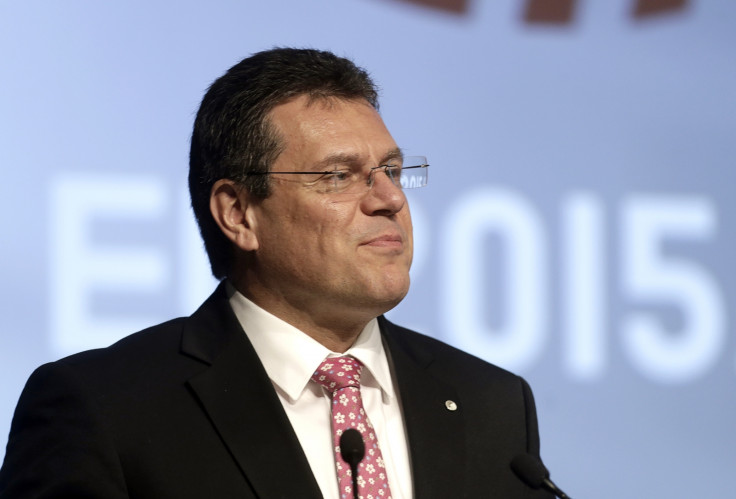EU plans single energy market to reduce reliance on Russia

The European Union has announced a plan for a single continental energy market, as it tries to reduce its reliance on Russian-produced energy.
Announcing the project, the European Commission said the move would boost energy security and efficiency and reduce the reliance on fossil fuels.
"Today, we launch the most ambitious European energy project since the Coal and Steel Community," said EC Vice-president Maros Sefcovic, in reference to the group that preceded the EU.
The planned energy union would see resources pooled, meaning gas and power would flow freely throughout the bloc through improved infrastructure.
But attempts to centralise energy policy in Brussels have often faced resistance from individual state governments, eager to maintain their grip on natural resources and protect closely-guarded energy supply information.
Germany relies heavily on Russian gas, while Britain is expanding its nuclear power options.
The EU Commission has asked member states to consult with it before making deals with big suppliers, such as Russia, as it seeks to reduce Moscow's power over individual EU members.
The Commission issued also issued a report, saying that the "fundamental transformation of Europe's energy system," will require investment of 1tn euros.
Environmental groups expressed concerns that the plans were not fully formed.
"The left hand doesn't know what the right hand is doing with this plan," Greenpeace said in a statement.
"Europe needs a coherent, joined-up plan if it's going to play its part against climate change and be the world number one in renewables."
Russian gas wars
The announcement was made just days after Russia threatened to cut off gas supplies to Ukraine, in a move that could affect gas supplies to Europe.
Russian state-gas giant Gazprom last year cut off gas supplies to Ukraine for six months, ostensibly over a pricing dispute, although it came amid the conflict in eastern Ukraine.
Gazprom had previously cut off gas supplies to Ukraine in the winters of 2006 and 2009, leading some European countries with a shortfall in supplies.
The EU relies on Russia for around a third of its gas needs, half of which crosses through Ukrainian pipelines.
© Copyright IBTimes 2024. All rights reserved.






